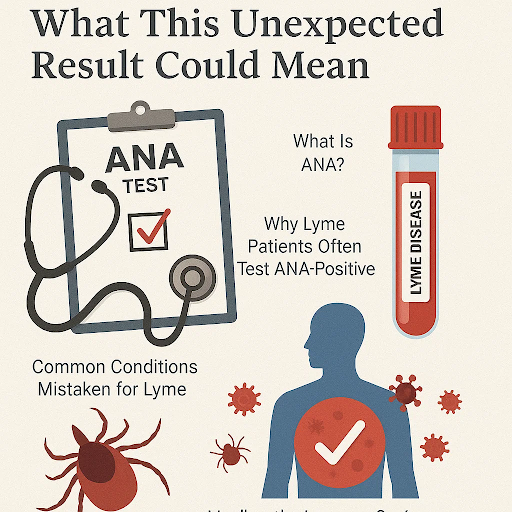
Introduction
If your ANA (antinuclear antibody) test comes back as positive, your doctor will promptly discuss autoimmune conditions such as lupus, rheumatoid arthritis and so on. But what many physicians do not realize is that a positive ANA does not always mean that an individual has an autoimmune condition.
For the fact check, chronic conditions such as Lyme disease triggers a positive ANA. This often leads to misdiagnosis, confusion, and varied treatment plans that do not work. Thereby, understanding why ANA turns positive is necessary and quite crucial.
What Is ANA?
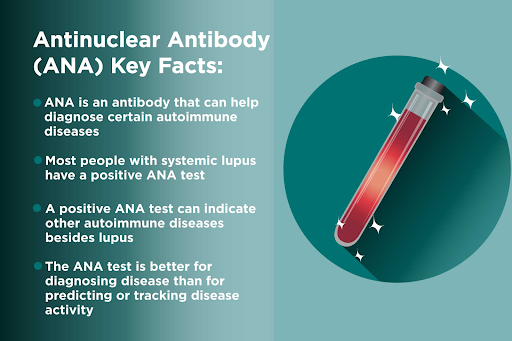
Understanding the tests and evaluating it can also confuse even seasoned doctors.
ANA stands for Antinuclear Antibodies (ANA) proteins made by the immune system that targets the core structures of your own cells. This type is often associated with autoimmune diseases such as lupus, rheumatoid arthritis, and so on– where one’s body attacks itself.
A positive ANA test means these antibodies targeting your own cells were present in your blood.
Understanding the test that can confuse even seasoned doctors.
ANA stands for Antinuclear Antibodies—proteins made by your immune system that mistakenly target the nuclei (core structures) of your own cells. This type of immune response is often associated with autoimmune diseases, like lupus or rheumatoid arthritis, where the body begins to attack itself.
The labs specifically look for the:
- Titer which shows the number of antibodies present.
- Patterns that hint at specific autoimmune conditions.
Now the question arises why this matters in Lyme disease?
Well, the false positives of Lyme tests evaluation are common. This can be confused with the immune system.
Why Lyme Patients Often Test ANA-Positive
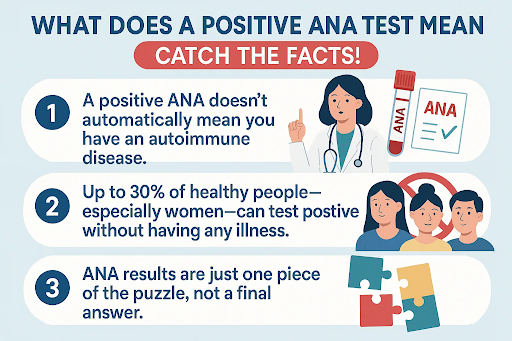
When there are some infections that mimic autoimmunity– lab results can raise more questions and answers.
- Immune system confusion: Lyme disease can disrupt and dysregulate the immune system. The infection might mimic and will look autoimmune in nature. Even if it is not!
- Mimic and Cross- Reactivity: Few Borrelia bacteria create antibodies against Lyme disease which can react with your own tissues. This will ultimately lead to positive ANA results.
- Persistent inflammation: There is overproduction of antibodies leading to activation of B cells which gives rise to inflammatory conditions. This can stay for long and cause dysfunctioning or improper functioning in the body.
- Antibiotic- induced elevation: There is triggering and autoimmune- like reactions while the antibiotics fight along the Lyme bacteria.
Common Conditions Mistaken for Lyme
There are certain conditions often mistaken and confused. This is due to:
Overlap of Symptoms
The symptoms look quite similar. For instance, fatigue, joint pain, brain fog, rashes, numbness– all of it are shared symptoms with conditions such as Lyme, RA, Multiple Sclerosis, or Fibromyalgia.
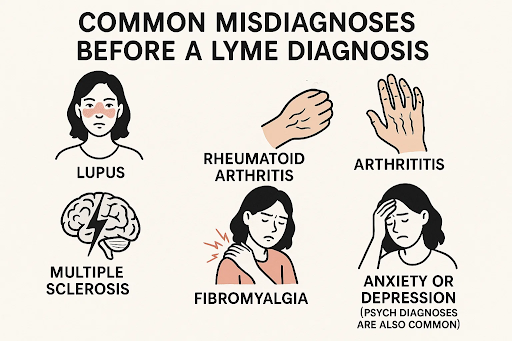
Positive Inflammatory markers
Physicians see positive ANA, elevated CRP, or ESR are often related to be autoimmune alterations.However, conditions such as Lyme and Bartonella can also trigger these markers because the immune system is under stress.
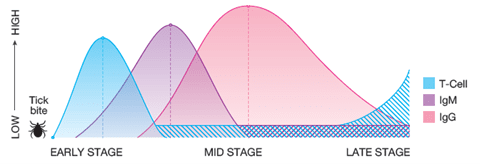
Chronic Immune Malfunctioning
Long- standing infections often lead to autoimmune- like reactions– or even true autoimmune diseases.
Healing the Immune System, Not Just Killing Bugs

Heal the immune system while dealing with Lyme. How? Let us take a glimpse of it.
Anti- inflammatory diet
Persistent inflammation causes chronic Lyme and co- infections. An enhanced anti- inflammatory diet can help calm the immune system and minimize problems such as joint pain, fatigue, and brain fog.

Nervous System Regulation
Chronic infection stresses the autonomic system, and suppresses the healing and immunity.

Immunomodulation
There are certain herbs that aid in regulation- calming the hyperactive conditions while strengthening weak responses.
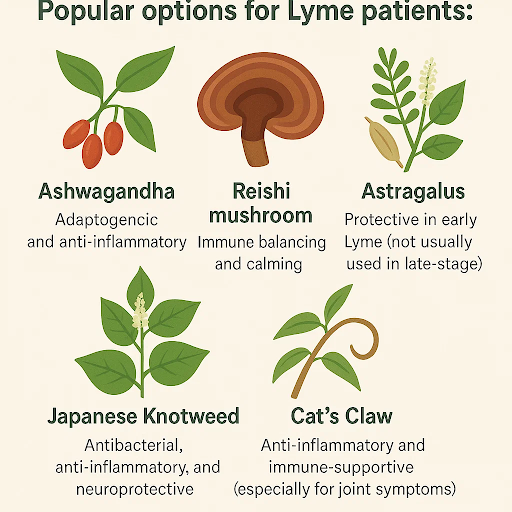
Detoxification and Gut Healing
About 70% of the immune system lives in the gut. Lyme basically interrupts the microbiome while consuming long- term antibiotics.

Conclusion
- A positive ANA result may feel like a clear path to an autoimmune diagnosis — but when symptoms don’t fully align, or treatments aren’t helping, it’s time to think differently.
- Lyme disease and other chronic infections can mimic autoimmunity and even trigger immune system dysregulation.
- Getting clarity means digging beyond the surface and working with someone who understands the blurred lines between infection and immunity. Don’t give up — the right answers can lead to real healing.
What’s Next for You?
Ready to explore a more complete path to recovery?
References
- Puri BK, Lee GS, Schwarzbach A. Antinuclear antibody seropositivity in fibromyalgia associated with Borrelia-specific T lymphocytes. Curr Rheumatol Rev. 2023;19(3). doi:10.2174/1573397119666230215124048.
- Antinuclear antibodies in patients with Lyme disease
Tokarska‑Rodak M, Niedźwiadek J, Fota‑Markowska H, et al. Antinuclear antibodies in patients with Lyme disease. New Med. 2010;14(4). pubmed.ncbi.nlm.nih.gov. - Antinuclear antibodies in the early phase of Borrelia infection
Spiewak R, et al. Antinuclear antibodies in the early phase of Borrelia infection. [online]. 2004. pubmed.ncbi.nlm.nih.gov. - Autoantibodies against cyclophilin in systemic lupus erythematosus and Lyme disease
Kratz A, Harding MW, Craft J, Mackworth‑Young CG, Handschumacher RE. Autoantibodies against cyclophilin in systemic lupus erythematosus and Lyme disease. Clin Exp Immunol. 1992;90(3):422‑427. doi:10.1111/j.1365‑2249.1992.tb05862.x. - Case report: Borrelia infection mimicking systemic lupus erythematosus
[Anonymous]. Borrelia infection and systemic lupus erythematosus. Case Reports. 1989;39 y.o. woman with ANA+, anti-dsDNA+, and renal involvement caused by Lyme. pubmed.ncbi.nlm.nih.gov.








